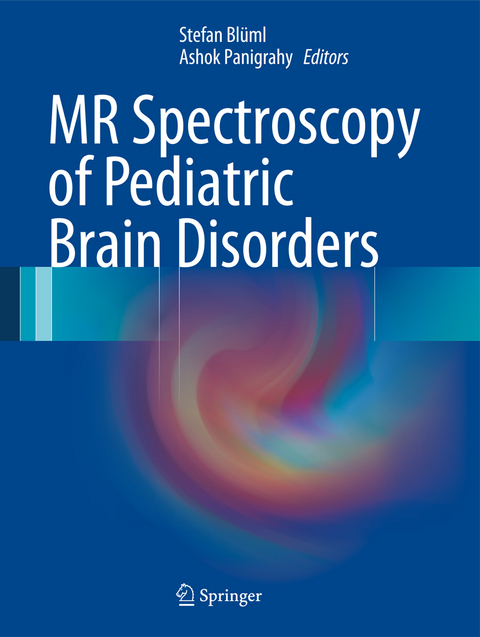
MR Spectroscopy of Pediatric Brain Disorders
Springer-Verlag New York Inc.
978-1-4899-8763-1 (ISBN)
There are several books available that describe applications of MRS in adults. However, to the best of our knowledge there is currently no book available that focuses exclusively on applications in pediatrics. MR spectroscopy in the pediatric population is different from adults for two main reasons. Particularly in the newborn phase the brain undergoes biochemical maturation with dramatic changes of the "normal" biochemical fingerprint. Secondly, brain diseases in the pediatric population are different from adult disorders. For example, brain tumors, which are mostly gliomas in the adults, often originate from different cell types and are also more diverse even within the same type and grade of tumor. This diversity of diseases and its implications for MR spectroscopy has not been addressed sufficiently in the literature, we believe. The target audience for "MR Spectroscopy of Pediatric Brain Disorders" are thus both clinicians and researchers involved with pediatric brain disorders. This includes radiologists, neurologists, neurooncologists, neurosurgeons, and more broadly the neuroscience and neurobiology community.
This book will provide the necessary background information to understand the basics of MR spectroscopy. This will be followed by a detailed discussion of the normal biochemical maturation which will highlight the metabolic differences between the pediatric and adult brain. Thereafter, in SECTION I individual chapters will address various pediatric brain disease families. Of particular importance for pediatrics are case studies. For that reason, SECTION II will contain a large number of case studies. This will be particularly important for clinicians who may want to see examples of MRS for various conditions. A standardized format will be used for case reports that allow the reader to quickly understand the history of each case presented and the significance of the findings. The case reports will also include information from other imaging modalities to point out any added value of MRS in addition to conventional studies and clinical information. This section is necessary because the format of providing more complete information about individual patients is not practical for the chapters in SECTION I.
The developing human brain: differences from adult brain.- Magnetic resonance spectroscopy: basics.- Metabolites of proton magnetic resonance spectroscopy and normal age-dependent changes.- Challenges in pediatric MR imaging.- Magnetic resonance spectroscopy of pediatric brain tumors.- Diffuse intrinsic pontine gliomas.- Traumatic brain injury and concussion.- Proton magnetic resonance spectroscopy: applications in neonatal medicine.- Proton magnetic resonance spectroscopy: application in non-accidental trauma.- Leukodystrophies.- Metabolic disorders.- Phenylketonuria.- Infection and encephalitis.- Hepatic encephalopathy in children.- Magnetic resonance spectroscopy in epilepsy.- 1H magenetic resonance spectroscopy of the brain during adolescence: normal brain development and neurophysiatric disorders.- Magnetic resonance spectroscopy studies of autistic spectrum disorders.- Magnetic resonance spectrocsopy studies of attention deficit hyperactivity disorder.- Magnetic resonance spectroscopy of the fetal brain.- Magnetic resonance spectroscopy of the neonatal brain.- Multinuclear MRS in children.- Case reports.
| Zusatzinfo | XIV, 402 p. |
|---|---|
| Verlagsort | New York |
| Sprache | englisch |
| Maße | 210 x 279 mm |
| Themenwelt | Medizin / Pharmazie ► Medizinische Fachgebiete ► Neurologie |
| Medizin / Pharmazie ► Medizinische Fachgebiete ► Pädiatrie | |
| Medizinische Fachgebiete ► Radiologie / Bildgebende Verfahren ► Kernspintomographie (MRT) | |
| Medizinische Fachgebiete ► Radiologie / Bildgebende Verfahren ► Radiologie | |
| Medizin / Pharmazie ► Studium ► 1. Studienabschnitt (Vorklinik) | |
| Naturwissenschaften ► Biologie ► Biochemie | |
| ISBN-10 | 1-4899-8763-0 / 1489987630 |
| ISBN-13 | 978-1-4899-8763-1 / 9781489987631 |
| Zustand | Neuware |
| Haben Sie eine Frage zum Produkt? |
aus dem Bereich


